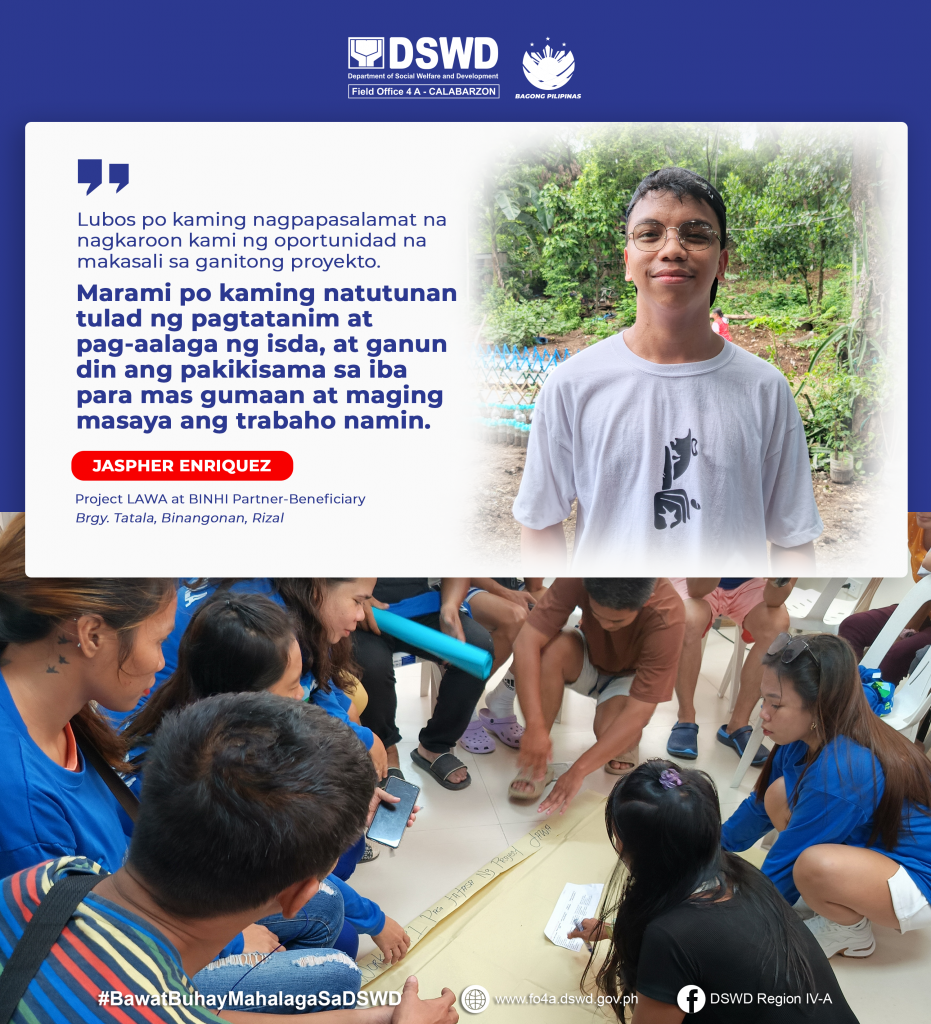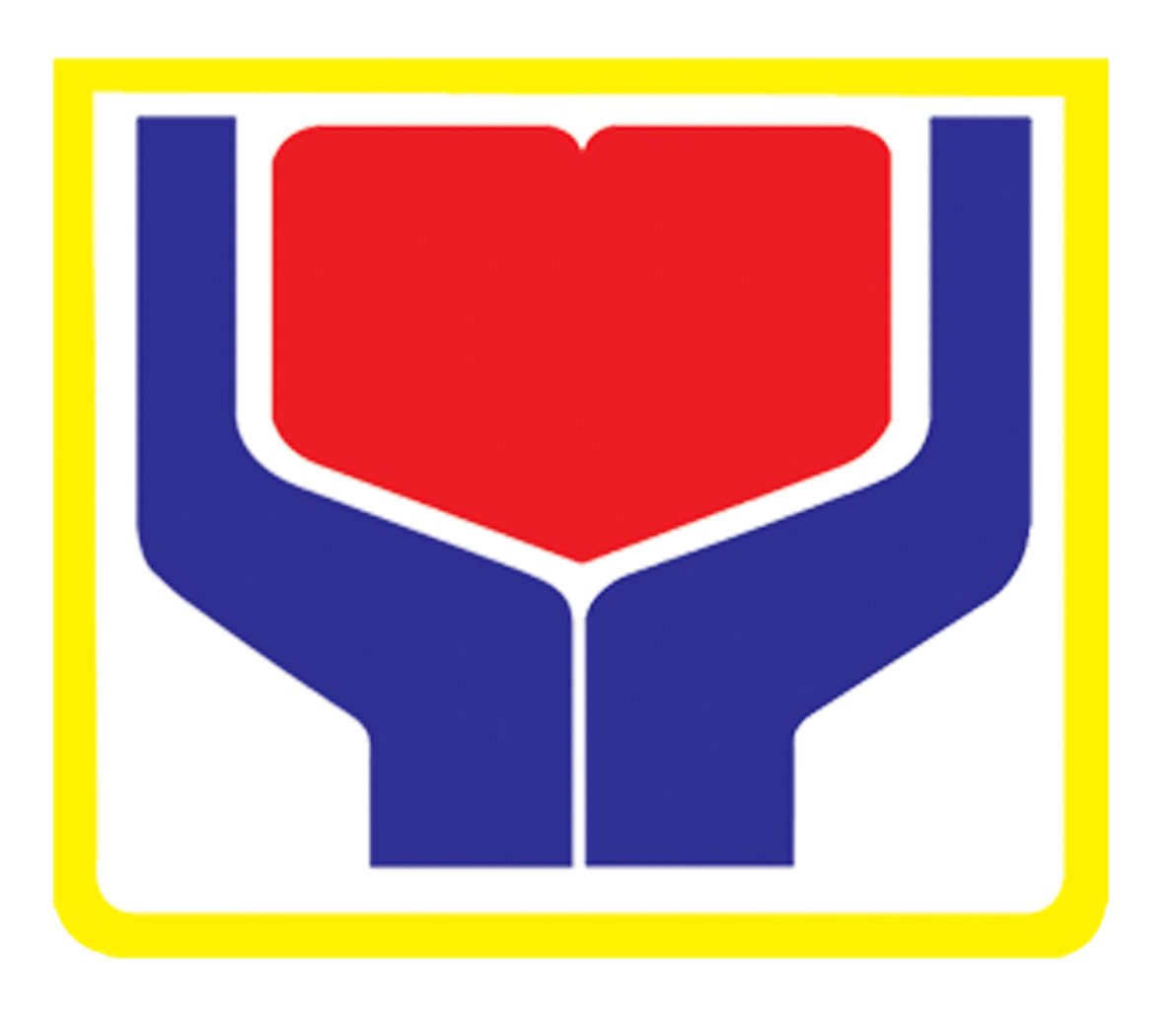July 18, 2025 – Three hundred (300) residents of Binangonan, Rizal completed community projects responding to food insecurity and water insufficiency in their communities under the DSWD’s Risk Resiliency Program thru Project LAWA at BINHI. Last July 15, the DSWD Field Office IV-A turned over these community projects to their local government and the residents for their onward operations and maintenance.
The residents, which started the program implementation last June 24, completed communal gardens, small farm reservoirs, and fishponds in barangays Pag-asa, Mahabang Parang, Tatala, Macamot, and Libid.
“Marami po akong natutunan sa Project LAWA at BINHI tulad ng tamang paraan ng pagtatanim, kahalagahan ng pag-iimbak ng tubig, pag-aalaga ng isda at ganun din ang basic first aid na maaari naming magamit,” shared Marie Favia, a resident of Brgy. Pag-asa.
Meanwhile, Jaspher Enriquez, a resident of Brgy. Tatala, shared his gratitude for the opportunity provided to them to establish useful projects for their community.
“Isa sa mga naging magandang experience ko ay ang pagiging open-minded sa mga suggestions at recommendations ng iba at ang pakikisama sa bawat isa upang mas gumaan at maging masaya ang pagtatrabaho,” said Enriquez.
Prior to the turnover of the community projects, all the residents also underwent a sustainability planning workshop, which prepared the residents to operate and maintain the projects for their communities.
The Project LAWA at BINHI (Local Adaptation to Water Access and Breaking Insufficiency through Nutritious Harvest for the Impoverished) is a program implemented by the DSWD, in coordination with the local government unit, that capacitates and engages residents in developing and sustaining projects that would help address food insecurity and water insufficiency in their communities. The program is implemented through a cash-for-training and cash-for-work scheme to also help residents gain a temporary source of income for their families.
In the province of Rizal, at least 1,800 residents are engaged in the said program in seven municipalities including Angono, Baras, Cardona, and San Mateo. To date, these residents are in different stages of the program implementation process. [with reports from MERCao]

